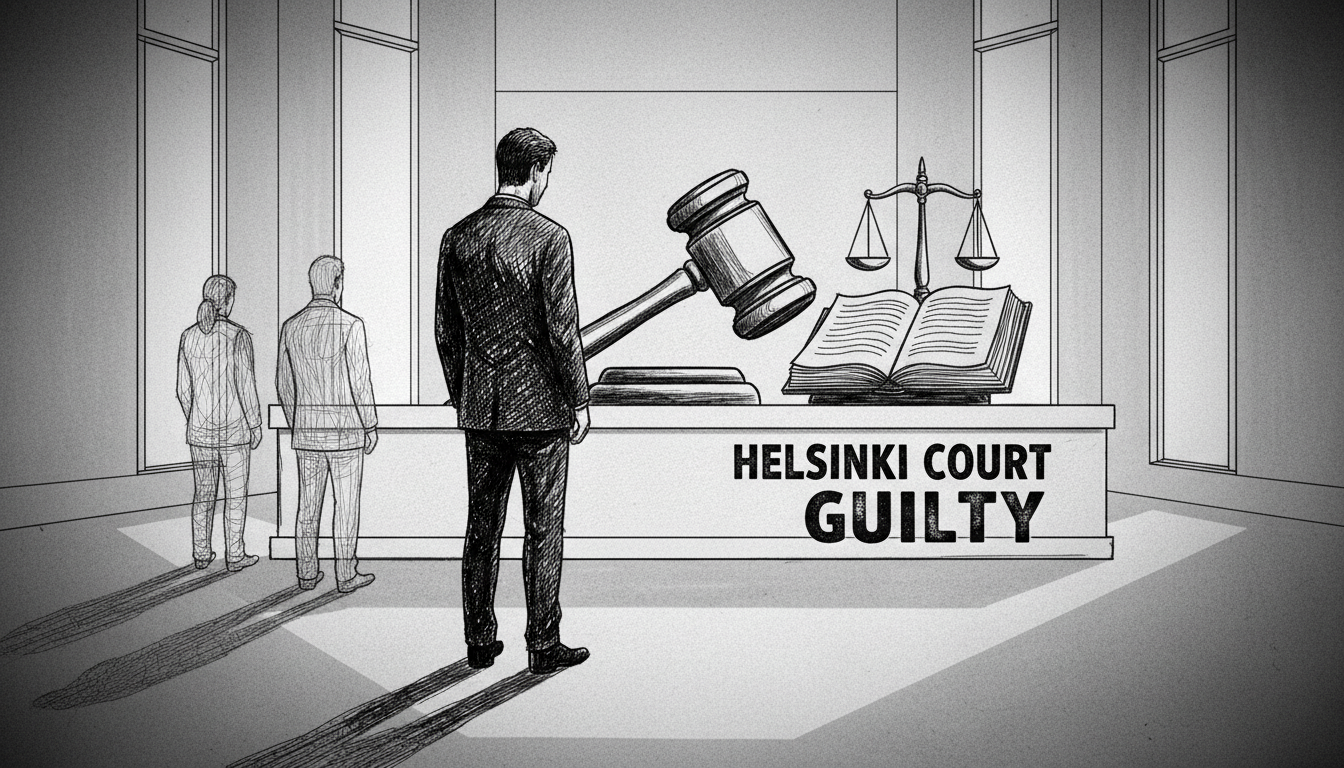A Helsinki appeals court has convicted a man for sexual assault in a case that highlights Finland's evolving approach to consent laws and delayed justice. The conviction came after a lengthy legal process that tested the country's judicial system and its handling of sensitive criminal cases.
The Helsinki Court of Appeal sentenced the defendant to one year and seven months of unconditional imprisonment for an assault that occurred during the third quarter. The court also ordered the man to pay his victim eight thousand euros in compensation with interest. This ruling overturned an earlier district court decision that had dismissed the charges entirely.
The assault took place in the Pikku Huopalahti neighborhood of Helsinki, an affluent residential area known for its quiet streets and proximity to the city center. The victim had visited the man's apartment after social gatherings and explicitly declined sexual activity before falling asleep. She later awoke to physical pain and discovered non-consensual anal intercourse had occurred while she was unconscious.
Legal experts note this case demonstrates Finland's strengthened interpretation of consent laws. The victim had clearly communicated her boundaries regarding sexual activity, making any subsequent sexual contact without explicit consent legally problematic. This aligns with recent legislative developments across Nordic countries that emphasize affirmative consent rather than mere absence of refusal.
The judicial process faced significant challenges due to the three-and-a-half-year delay between the incident and the victim's official police report. District court judges initially found both parties' accounts equally credible and dismissed the case based on reasonable doubt. The appeals court however conducted a more thorough evaluation of evidence including text messages and therapist testimony.
Text exchanges between the victim and her friend shortly after the incident supported her account of feeling disturbed by what happened. The court also heard testimony from the victim's therapist about the psychological impact. These elements proved crucial in establishing the credibility of her narrative despite the time lapse.
Finnish legal observers point to this case as part of a broader pattern where appeals courts are taking stronger stances on sexual violence cases. The Helsinki Court of Appeal specifically noted the defendant's version of events lacked credibility when compared with other evidence. This represents a shift toward more victim-centered approaches in sexual assault jurisprudence.
The conviction comes amid ongoing discussions in Finnish Parliament about strengthening sexual crime legislation. Several political parties have proposed reforms that would clarify consent definitions and streamline prosecution processes. Cases like this one provide real-world examples of where current laws face implementation challenges.
For international observers, this case offers insight into Finland's legal system and its handling of complex criminal matters. The two-tier court process demonstrates how different judicial bodies can interpret the same evidence differently. It also shows the importance of comprehensive evidence collection in achieving justice for victims of sexual violence.
The sentence was reduced by three months due to the lengthy delay between the incident and final judgment. Legal professionals note such reductions are standard in Finnish law when procedural delays occur, though some critics argue this practice can diminish accountability for serious crimes.
This ruling reinforces that clear communication of sexual boundaries must be respected in Finland, regardless of previous intimate contact or social relationships. The outcome sends a message that delayed reporting, while challenging for legal proceedings, does not automatically undermine a victim's credibility in the eyes of the court.

